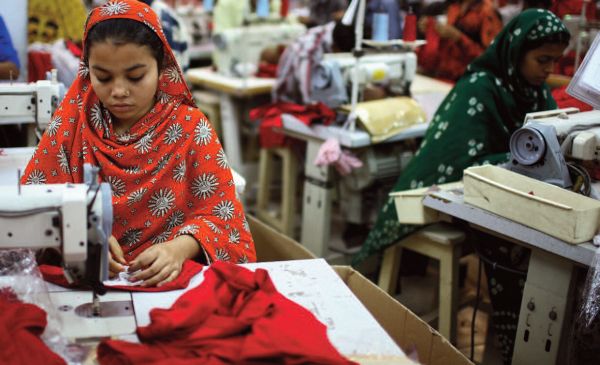A new report by UK based charity War on Want shows that women producing for top European retailers, including Zara, are struggling to survive despite long hours of overtime.
Interviews were conducted with 1,000 female employees from 41 garment factories supplying to European markets. 96% of workers said that their wages were dependent on meeting arduous production targets. One third of the female employees reported to work overtime of between 100-140 hours every month. Overtime shifts are generally forced and 70% of workers who stay overnight to meet production targets report having no access to food or water.
Representing 85% of its employees, women are the backbone of Bangladesh’s thriving garment industry. Yet they continue to encounter high levels of discrimination and sexual harassment.
But women who have been active in their workplace unions have had a powerful impact. In 2010 they achieved an 80% wage rise for some of the poorest paid workers. But they argue this still isn’t nearly enough. The minimum wage for garment workers (about AUD $48) meets less than half of their average household expenditure, forcing most workers into ongoing cycles of debt.
Find out more
Read Stitched Up—War on Want’s report on women workers in the Bangladeshi garment sector.
Watch interview with Bangladeshi garment worker
Watch the Clean Clothes Campaign interview with Bangladeshi garment worker and human rights activist Kalpona Akhter.
Image Credit: Stitched Up/War on Want

